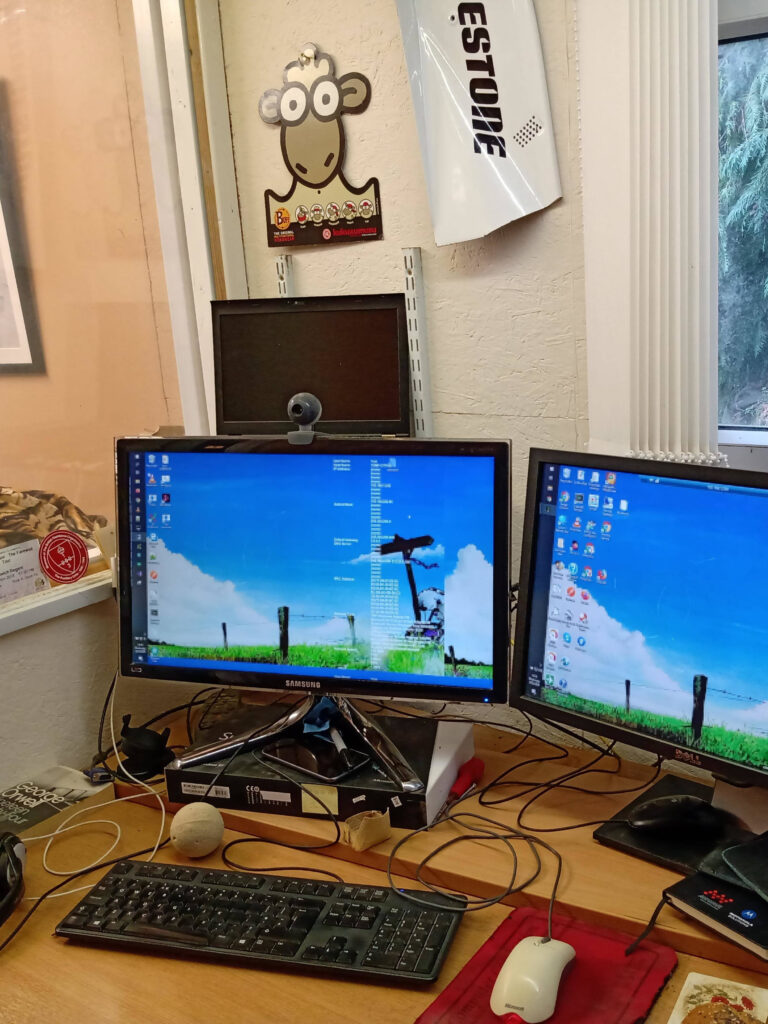In 2011 I became a remote worker. I was really surprised how easy it was, but I was working for the Department of Computer Science at the University of Hull so if we couldn’t make it work, that would have been a very bad sign.
COVID-19 has changed the game completely though. For us accustomed remote workers the results have been positive; in many ways it’s making our lives a lot easier. Over the past few months, however, we’ve been watching, and trying politely to advise, the rest of the world as they catch up with many of the social aspects.
By and large, with the occasional nudge, it seems that everyone has now learnt the core lessons. I’ll talk about them at another time, for now I want to talk about something that doesn’t seem to have made it into culture yet: the etiquette about muting in a meeting.
Background noise happens. It’s a fact of life. Whether it’s the builders next door or your partner on another call or a small Yorkshire terrier inexplicably named Fenrir, it happens. What’s more, for a variety of reasons, sometimes background noise can get amplified to unpleasant levels and broadcast to the entire meeting.
Two things we need to establish:
- Being on mute is not a sign that you’re not contributing, or not intending to contribute. It’s a sign that you’ve learnt the shortcut key that your system uses and that you respect the other people in the meeting. It’s very rare that you need to speak instantly and without warning. Get used to CRTL+D – talk – CTRL+D (if you use Google). It just basic politeness.
- It’s not rude to mute other people if you’re getting background noise from them. Most systems allow this. If you’re using one where only the meeting organiser can mute other people, then it’s part of the organiser’s job. Obviously, if it’s convenient, point it out and ask the person to mute themselves, but if Tracy is talking and Geoff’s geese suddenly get spooked, then mute Geoff.
Believe me, you do not need unsolicited contributions from geese in any meeting.
There are a couple of ancillary points. In the above case Geoff might have no idea how loud the geese are, because he may be using really good noise cancelling headphones. That algorithm might be entirely different to the one used for the meeting, which might think that geese are really important contributors who need to be put front and centre. Background noise doesn’t mean that anyone’s doing anything wrong or that they’re being inconsiderate. It’s not a conflict situation, don’t treat it like one.
Finally, please invest in (at least) basic equipment. Laptop mics are awful, not in the least because of how far they are away from your mouth. What’s more, if you so much as look at your keyboard whilst using a laptop mic, the whole world will know about it. A good, basic headset is a huge improvement over a laptop mic.
The headset I use is one of these. There are a lot of similar headsets on the market at a similar price. If I worked in a noisier environment I might have paid for the advantage of active noise cancellation, but for me it’s not necessary.
If we bake these things into business culture now, if we make them protocol, it will make our lives just that little bit easier and our workplaces just that little bit more productive.
